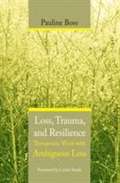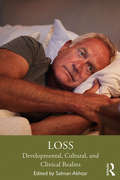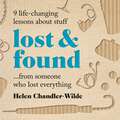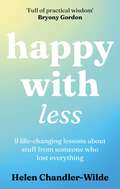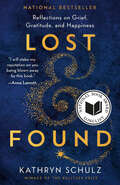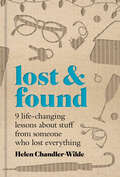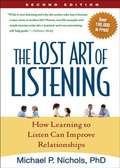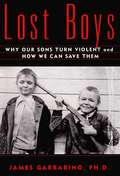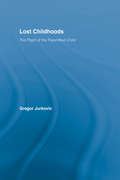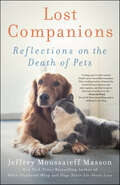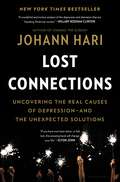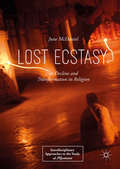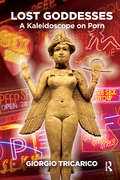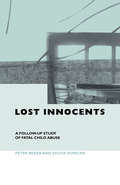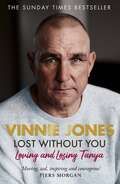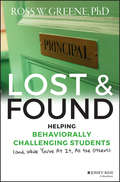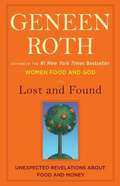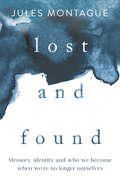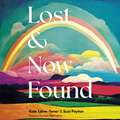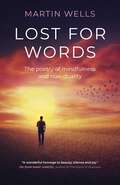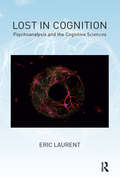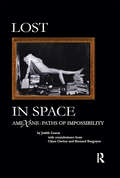- Table View
- List View
Loss, Trauma, and Resilience: Therapeutic Work with Ambiguous Loss
by Pauline BossPauline Boss, the principal theorist of the concept of ambiguous loss, guides clinicians in the task of building resilience in clients who face the trauma of loss without resolution. Boss describes a concrete therapeutic approach that is at once directive and open to the complex contexts in which people find meaning and discover hope in the face of ambiguous losses. In Part I readers are introduced to the concept of ambiguous loss and shown how such losses relate to concepts of the family, definitions of trauma, and capacities for resilience. In Part II Boss leads readers through the various aspects of and target points for working with those suffering ambiguous loss. From meaning to mastery, identity to ambivalence, attachment to hope-these chapters cover key states of mind for those undergoing ambiguous loss. The Epilogue addresses the therapist directly and his or her own ambiguous losses. Closing the circle of the therapeutic process, Boss shows therapists how fundamental their own experiences of loss are to their own clinical work. In Loss, Trauma, and Resilience, Boss provides the therapeutic insight and wisdom that aids mental health professionals in not "going for closure," but rather building strength and acceptance of ambiguity. What readers will find is a concrete therapeutic approach that is at once directive and open to the complex contexts in which people find meaning and discover hope in the face of ambiguous losses.
Loss: Developmental, Cultural, and Clinical Realms
by Salman AkhtarThe experience of loss is ubiquitous in human life, but its nature and impact have great variations. When loss is phase-specific, expected, and accompanied by compensatory supplies, it can lead to ego growth. When loss is untimely, unexpected, and unaccompanied by environmental 'holding,' it becomes traumatic and needs clinical attention. This edited volume brings together a distinguished cadre of international contributors in order to explain the multifaceted and nuanced nature of loss from a variety of different perspectives. These clinicians, administrators, and writers delineate the great variability in the setting, antecedents, and consequences of loss. Development-facilitating and development-impeding losses are addressed and so are the losses that seem inevitable as one moves from childhood through adolescence and young adulthood to midlife and old age. Loss experienced by institutional organizations and war-torn societies is also examined. The book’s ultimate focus is clinical: it highlights the many technical dilemmas in working with grieving patients and offers therapeutic strategies aimed at ameliorating their anguish. Loss: Developmental, Cultural, and Clinical Realms will appeal to psychoanalysts and psychotherapists both in practice and training from a variety of different backgrounds.
Lost & Found: 9 life-changing lessons about stuff from someone who lost everything
by Helen Chandler-WildeAn exploration into why we keep holding on to material things and what they mean to usOn New Year's Eve of 2018, journalist Helen Chandler-Wilde lost everything she owned in a storage unit fire in Croydon, where she'd stowed all her possessions after a big break-up. She was left devastated, and forced to re-evaluate her relationship with owning material things. A mix of memoir, self-help and journalism, Lost & Found explores the psychological reasons for why we buy and keep the things we do, and explains how we can liberate ourselves from the tyranny of 'too much'. Helen interviews people from all walks of life, including behavioural psychologists on the science of nostalgia, a nun on what it's like to own almost nothing and consumer psychologists on why we spend impulsively, to help us better understand why we're surrounded by clutter and what we can do to change it.This smart-thinking book explains the sociological quirks of human nature and the fascinating science behind why we buy and hold onto things. By the end of it, your relationship with your belongings will be changed forever.
Lost & Found: 9 life-changing lessons about stuff from someone who lost everything
by Helen Chandler-WildeAn exploration into why we keep holding on to material things and what they mean to usOn New Year's Eve of 2018, journalist Helen Chandler-Wilde lost everything she owned in a storage unit fire in Croydon, where she'd stowed all her possessions after a big break-up. She was left devastated, and forced to re-evaluate her relationship with owning material things. A mix of memoir, self-help and journalism, Lost & Found explores the psychological reasons for why we buy and keep the things we do, and explains how we can liberate ourselves from the tyranny of 'too much'. Helen interviews people from all walks of life, including behavioural psychologists on the science of nostalgia, a nun on what it's like to own almost nothing and consumer psychologists on why we spend impulsively, to help us better understand why we're surrounded by clutter and what we can do to change it.This smart-thinking book explains the sociological quirks of human nature and the fascinating science behind why we buy and hold onto things. By the end of it, your relationship with your belongings will be changed forever.
Lost & Found: A Memoir
by Kathryn SchulzAn enduring account of joy and sorrow from one of the great writers of our time, The New Yorker&’s Kathryn Schulz, winner of the Pulitzer Prize&“Our lives do indeed deserve and reward the kind of honest, gentle, brilliant scrutiny Schulz brings to bear on her own life. The book is profound and beautiful.&”—Marilynne Robinson, author of Housekeeping and GileadONE OF THE MOST ANTICIPATED BOOKS OF 2022—Oprah Daily, The Washington Post, Vogue, The Philadelphia Inquirer, Esquire, Chicago Review of Books, Town & Country, Electric Lit, The Rumpus, Lit HubEighteen months before Kathryn Schulz&’s beloved father died, she met the woman she would marry. In Lost & Found, she weaves the stories of those relationships into a brilliant exploration of how all our lives are shaped by loss and discovery—from the maddening disappearance of everyday objects to the sweeping devastations of war, pandemic, and natural disaster; from finding new planets to falling in love.Three very different American families form the heart of Lost & Found: the one that made Schulz&’s father, a charming, brilliant, absentminded Jewish refugee; the one that made her partner, an equally brilliant farmer&’s daughter and devout Christian; and the one she herself makes through marriage. But Schulz is also attentive to other, more universal kinds of conjunction: how private happiness can coexist with global catastrophe, how we get irritated with those we adore, how love and loss are themselves unavoidably inseparable. The resulting book is part memoir, part guidebook to living in a world that is simultaneously full of wonder and joy and wretchedness and suffering—a world that always demands both our gratitude and our grief.A staff writer at The New Yorker and winner of the Pulitzer Prize, Kathryn Schulz writes with curiosity, tenderness, erudition, and wit about our finite yet infinitely complicated lives. Crafted with the emotional clarity of C. S. Lewis and the intellectual force of Susan Sontag, Lost & Found is an uncommon book about common experiences.
Lost & Found: Nine life-changing lessons about stuff from someone who lost everything
by Helen Chandler-WildeWhy do we buy and keep the things we do, and how can we live a less cluttered life? Journalist Helen Chandler-Wilde dives deep to explore, explain, and guide us on the path to liberation from the tyranny of "too much."On New Year's Eve of 2018, Helen Chandler-Wilde lost everything she owned in a storage unit fire in Croydon, England, where she'd stowed all her possessions after a big breakup. She was left devastated and forced to re-evaluate her relationship with owning material things.In Lost & Found, she offers a profound mix of memoir, self-help, and journalism to explore the psychological reasons, sociological quirks of human nature, and fascinating science behind why we buy and hold onto things. Helen interviews people from all walks of life, including behavioral psychologists on the science of nostalgia, a nun on what it's like to own almost nothing, and consumer psychologists on why we spend impulsively, to help us better understand why we're surrounded by clutter and what we can do to change it.By the end of this smart-thinking book filled with lessons and engaging prompts to help us gain perspective on our buying habits and the value we place on what we already have, your relationship with your belongings will be changed forever. The perfect "new year, new you" read or gift for anyone who is downsizing, striving for a more sustainable lifestyle, or is eager to cultivate a minimalist mindset.
Lost Art of Listening, Second Edition
by Michael NicholsOne person talks; the other listens. It's so basic that we take it for granted. Unfortunately, most of us think of ourselves as better listeners than we actually are. Why do we so often fail to connect when speaking with family members, romantic partners, colleagues, or friends? How do emotional reactions get in the way of real communication? This thoughtful, witty, and empathic book has already helped over 100,000 readers break through conflicts and transform their personal and professional relationships. Experienced therapist Mike Nichols provides vivid examples, easy-to-learn techniques, and practical exercises for becoming a better listener--and making yourself heard and understood, even in difficult situations.
Lost Art of Listening, Second Edition
by Michael P. NicholsOne person talks; the other listens. It's so basic that we take it for granted. Unfortunately, most of us think of ourselves as better listeners than we actually are. Why do we so often fail to connect when speaking with family members, romantic partners, colleagues, or friends? How do emotional reactions get in the way of real communication? This thoughtful, witty, and empathic book has already helped over 100,000 readers break through conflicts and transform their personal and professional relationships. Experienced therapist Mike Nichols provides vivid examples, easy-to-learn techniques, and practical exercises for becoming a better listener--and making yourself heard and understood, even in difficult situations.
Lost Art of Listening, Second Edition
by Michael P. NicholsOne person talks; the other listens. It's so basic that we take it for granted. Unfortunately, most of us think of ourselves as better listeners than we actually are. Why do we so often fail to connect when speaking with family members, romantic partners, colleagues, or friends? How do emotional reactions get in the way of real communication? This thoughtful, witty, and empathic book has already helped over 100,000 readers break through conflicts and transform their personal and professional relationships. Experienced therapist Mike Nichols provides vivid examples, easy-to-learn techniques, and practical exercises for becoming a better listener--and making yourself heard and understood, even in difficult situations.
Lost Boys: Why Our Sons Turn Violent and How We Can Save Them
by James GarbarinoIn the first book to help parents truly understand youth violence and stop it before it explodes, national expert Dr. James Garbarino reveals how to identify children who are at risk and offers proven methods to prevent aggressive behavior. After more than a decade of relentless increase in the urban war zones of large cities, violence by young boys and adolescents is on the rise in our suburbs, small towns, and rural communities. Twenty-five years as a psychologist working in the trenches with such children has convinced James Garbarino that boys everywhere really are angrier and more violent than ever before. In light of the recent school-based shootings, it's now clear that no matter where we live or how hard we try as parents, chances are our children are going to school with troubled boys capable of getting guns and pulling triggers. Beyond the deaths and debilitating injuries that result from this phenomenon are the staggering psychological costs -- children who are afraid to go to school, teachers who are afraid of their students, and parents who fear for their children's lives. Building on his pioneering work, Garbarino shows why young men and boys have become increasingly vulnerable to violent crime and how lack of adult supervision and support poses a real and growing threat to our children's basic safety. For these vulnerable boys, violence can become normal, the "right thing to do. " Terry, one of the boys Garbarino interviews, says "I just wasn't gonna take it anymore. I knew I would have to pay the price for what I did, but I didn't care. " We've seen how the deadly combination of ignoring excessively bad behavior and allowing easy access to guns has destroyed families in Pennsylvania, Oregon, New York, Washington, Kentucky, and Arkansas. Fortunately, parents can spot troubled boys and take steps to protect their families from violence if they know what signs to look for -- lack of connection, masking emotions, withdrawal, silence, rage, trouble with friends, hypervigilance, cruelty toward other children and even animals -- all warning signs that every parent and peer can recognize and report. Dr. Garbarino, whom Dr. Stanley Greenspan of the National Institute of Mental Health hails as "one of the true pioneers in our understanding of the inner life of our youth," addresses the wide range of issues that boys of every temperament and from every background may have to confront as they grow and develop. By outlining the steps parents, teachers, and public officials can take to keep all children safer, Dr. Garbarino holds out hope and solutions for turning our kids away from violence, before it is too late. This is one of the most important and original books ever written about boys.
Lost Childhoods: The Plight Of The Parentified Child
by Gregory J. JurkovicFirst published in 1997. Routledge is an imprint of Taylor & Francis, an informa company.
Lost Companions: Reflections on the Death of Pets
by Jeffrey Moussaieff MassonA heartfelt exploration of human grief after the loss of a pet by the New York Times bestselling author of Dogs Never Lie About Love.Over 84 million Americans—almost 3/4 of the US population—own a pet, and our society is still learning how to recognize and dignify that relationship with proper mourning rituals. We have only recently allowed the conversation of how to grieve for our non-human family members to come front and center.Lost Companions fills a specific, important demand, a massive need in the market for an accessible, meaningful book on pet loss. Jeffrey Moussaieff Masson takes a very personal, heartfelt approach to this difficult subject, allowing readers to explore their own responses and reactions, suggesting ways through and out of grief, as well as meaningful ways to memorialize our best friends. Lost Companions is full of moving, thought-provoking and poignant stories about dogs, cats, horses, birds, wombats and other animals that beautifully illustrate the strong bond humans form with them.
Lost Connections: Uncovering the Real Causes of Depression - and the Unexpected Solutions
by Johann HariThere was a mystery haunting award-winning investigative journalist Johann Hari. He was thirty-nine years old, and almost every year he had been alive, depression and anxiety had increased in Britain and across the Western world. Why? <p><p> He had a very personal reason to ask this question. When he was a teenager, he had gone to his doctor and explained that he felt like pain was leaking out of him, and he couldn’t control it or understand it. Some of the solutions his doctor offered had given him some relief―but he remained in deep pain. <p> So, as an adult, he went on a forty-thousand-mile journey across the world to interview the leading experts about what causes depression and anxiety, and what solves them. He learned there is scientific evidence for nine different causes of depression and anxiety―and that this knowledge leads to a very different set of solutions: ones that offer real hope. <p><b>A New York Times Bestseller</b>
Lost Ecstasy: Its Decline and Transformation in Religion (Interdisciplinary Approaches to the Study of Mysticism)
by June McDanielThis book is a study of religious ecstasy, and the ways that it has been suppressed in both the academic study of religion, and in much of the modern practice of religion. It examines the meanings of the term, how ecstatic experience is understood in a range of religions, and why the importance of religious and mystical ecstasy has declined in the modern West. June McDaniel examines how the search for ecstatic experience has migrated into such areas as war, terrorism, transgression, sexuality, drug use, and anti-institutional forms of spirituality. She argues that the loss of religious and mystical ecstasy, as both a religious goal and as a topic of academic study, has had wide-ranging negative effects. She also proposes that the field of religious studies must go beyond criminalizing, trivializing and pathologizing ecstatic and mystical experiences. Both religious studies and theology need to take these states seriously as important aspects of lived human experience.
Lost Goddesses: A Kaleidoscope on Porn
by Giorgio TricaricoPorn is a complex symbol of our current world, and a shining example of the 'Shadow' of the Western culture. While many books essentially show its negative sides, the risks of addiction, the danger of damaging the relationship between sexes, and so on, this work focuses on porn as a phenomenon of our times, exploring its several colours, and trying to capture its inner logic and essence. Despite its pervasive ubiquity in the internet and in the lives of many, porn is apparently the ultimate taboo in the consulting room: in fact, very rarely does a patient mention something detailed about his or her use of porn. In parallel with its growing presence, the last forty years have witnessed a significant growth of publications about porn. The present work aims at deepening some aspects of internet porn from the perspective of Analytical Psychology, seeing it as symbol of the complexity of the human psyche, emerged in a specific moment of the history of consciousness.
Lost Innocents: A Follow-up Study of Fatal Child Abuse
by Peter Reder Sylvia DuncanLost Innocents is a follow-up to Beyond Blame: Child Abuse Tragedies Revisited (1993). In their new book, Peter Reder and Sylvia Duncan use the same process of case analysis and apply it to a more representative sample of cases. They describe the theoretical basis and method of the study and its findings, before going on to discuss their practical implications, and their opinions about the case review process itself. Finally, the authors discuss whether child abuse fatalities can be predicted or prevented.
Lost Without You: Loving And Losing Tanya
by Vinnie Jones'This is not a love story I ever wanted to tell, because I hoped it would just go on and on, and never end. I thought that we'd grow old together. I never wanted it to be a tale.
Lost Without You: Loving and Losing Tanya
by Vinnie Jones'This is not a love story I ever wanted to tell, because I hoped it would just go on and on, and never end. I thought that we'd grow old together. I never wanted it to be a tale.But here I am, a middle-aged man sitting at the kitchen table as the California light fades, thinking about the coming night and how to get through it. Trying to explain to someone - to anyone - what it was like to live through something extraordinary: an amazing three decades that happened to me. Three decades that are now over.'In July 2019 Vinnie Jones tragically lost his wife and soulmate Tanya after her six-year battle with cancer. Tanya and Vinnie had shared 27 amazing years and raised a beautiful family together. Her passing was a devastating shock to everyone - and Vinnie found himself struggling to cope.In this extraordinarily intimate memoir, Vinnie tackles his grief honestly and with heart, sharing warm and colourful stories from the 25 years he spent married to Tanya, and unfiltered accounts of the reality of grief. From the darkest hours to the happiest moments, and everything in between, it is tender and heart-breaking, deeply honest but also full of humour and hope.Written to honour Tanya's life, Lost Without You is a beautiful and brave story of love and loss. Nothing will take away the pain of Tanya's death, but if in sharing his experiences Vinnie can inspire others in the depths of the unspeakable to find the help they need, then he will have succeeded in the keeping her kind, caring and selfless spirit alive.
Lost and Found: Helping Behaviorally Challenging Students (and, While You're At It, All the Others)
by Ross W. GreeneImplement a more constructive approach to difficult students Lost and Found is a follow-up to Dr. Ross Greene's landmark works, The Explosive Child and Lost at School, providing educators with highly practical, explicit guidance on implementing his Collaborative & Proactive Solutions (CPS) Problem Solving model with behaviorally-challenging students. While the first two books described Dr. Greene's positive, constructive approach and described implementation on a macro level, this useful guide provides the details of hands-on CPS implementation by those who interact with these children every day. Readers will learn how to incorporate students' input in understanding the factors making it difficult for them to meet expectations and in generating mutually satisfactory solutions. Specific strategies, sample dialogues, and time-tested advice help educators implement these techniques immediately. The groundbreaking CPS approach has been a revelation for parents and educators of behaviorally-challenging children. This book gives educators the concrete guidance they need to immediately begin working more effectively with these students. Implement CPS one-on-one or with an entire class Work collaboratively with students to solve problems Study sample dialogues of CPS in action Change the way difficult students are treated The discipline systems used in K-12 schools are obsolete, and aren't working for the kids to whom they're most often applied - those with behavioral challenges. Lost and Found provides a roadmap to a different paradigm, helping educators radically transform the way they go about helping their most challenging students.
Lost and Found: One Woman's Story of Losing Her Money and Finding Her Life
by Geneen RothThe #1 New York Times bestselling author of Women Food and God maps a path to meeting one of our greatest challenges-how we deal with money. When Geneen Roth and her husband lost their life savings in the Bernard Madoff debacle, Roth joined the millions of Americans dealing with financial turbulence, uncertainty, and abrupt reversals in their expectations. The resulting shock was the catalyst for her to explore how women's habits and behaviors around money-as with food-can lead to exactly the situations they most want to avoid. Roth identified her own unconscious choices: binge shopping followed by periods of budgetary self-deprivation, "treating" herself in ways that ultimately failed to sustain, and using money as a substitute for love, among others. As she examined the deep sources of these habits, she faced the hard truth about where her "self-protective" financial decisions had led. With irreverent humor and hard-won wisdom, she offers provocative and radical strategies for transforming how we feel and behave about the resources that should, and can, sustain and support our lives.From the Trade Paperback edition.
Lost and Found: Why Losing Our Memories Doesn't Mean Losing Ourselves
by Dr Jules Montague'Exquisite . . . a book for anyone with a loved one with dementia. In Montague's hands this landscape is rendered more bearable.' Irish Times 'A profoundly moving book . . . Jules Montague is writing about whatit is to be human and the surprising fragility of our sense of self.' Daily MailWho do you become when your mind misbehaves? Neurologist Dr Jules Montague blends stories of her patients experiencing dementia, brain injury and other neurological disorder with profound insights on what makes us who we are. At once poignant and consoling, this revelatory book explores how we lose ourselves and those around us - and how we can be found again.Lost and Found is a fascinating and timely examination of happens to the person left behind when memories disappear, personality changes, and consciousness is disrupted.
Lost and Now Found: A guide to understanding and accepting yourself for late-discovered autistic adults
by Kate Laine-Toner Suzi PaytonWhat happens when you discover that you are autistic later in life? How do you move forward from that point? If you are feeling lost, this is the book for you. Featuring deeply personal stories from the authors and other autistic people in their thirties, forties, fifties and beyond, you will be supported to explore your autistic identity and to learn how to build a 'life hand-picked' for your unique needs.It's time to be happier, healthier, less anxious - and to find the real you.
Lost for Words: The Poetry of Mindfulness and Non-duality
by Martin WellsIn the early hours of almost every morning during the Covid lockdown in the months of March and April 2021, these poems began mysteriously arriving - like persistent early morning visitors. Curiously, the author's wife was absent for the whole of this time, and much to her amusement, in her place lay an open notebook, a blank page and a pen. Soon nearly 40 poems filled the notebook - Martin never having written poetry in his life before. Although the pandemic provides the foreground for this collection of poems, they have also been prompted by timeless universal themes, symbolised in a snowdrop, a park bench or an olive tree; found in conversations about love and life and death, in news items and random images. But most of all arising out of that deep longing for union and freedom at the source of each of us. The poems are about what it means to be alive and deeply connected to the natural world. In so doing they go to the heart of mindful living and non-dual wisdom.
Lost in Cognition: Psychoanalysis and the Cognitive Sciences
by Eric LaurentThis book examines the pretensions of the new paradigm in psychology that has put itself forward as the model for the future of the clinical disciplines, thereby seeking to put paid to psychoanalysis. What is this paradigm shift? It goes by the name of cognitive-behaviourism. Where does it come from? From the United States. Until the nineteen-sixties, behavioural psychology had enjoyed a certain prestige in the US. It was later disqualified by the objections from the linguist Noam Chomsky who held that no learning procedure could ever account for linguistic ability. This ability was surely innate, Chomsky argued, and so he set about hunting out the organ of language. Behaviour had to be complemented by a machine for taking cognisance, a machine that was innate and which conformed to the post-Chomskyan model. It took the discipline some thirty years to deck itself out in new clothes. The advances in biology, in neurology, and in the nebula that resulted from them under the 'neuroscience' label, oversaw this change.
Lost in Space: Amexane - Paths of Impossibility
by Judith Gracie'"The mares which bear me as far as my desires might reach ...": a piece of writing from two and a half thousand years ago catches the intent of this work. The author has etched a body of poetry that follows a trajectory not often encountered in the writings of the modern world.'- From the Preface by Bernard Burgoyne this is a stunning and original book that breaks new ground in the field of contemporary literature. Informed by Greek and Shakespearean tragedy, readings of Lacan, Freud and P. G. Wodehouse, its principal themes are maternal desire; the structure of tragic thought; writing itself, and the possibility of finding seemingly impossible pathways through the suffering of lived experience. It is, amongst other things, a love story, a philosophical inquiry, an artwork, a collection of poetry and - a book of jokes. The author writes an expansive, 'everyone welcome', style of epic, one which is proof for the urgent necessity of the poetic voice. Bernard Burgoyne provides the Preface and fresh topological etchings.
